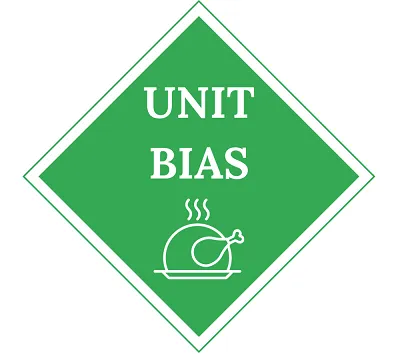#### Preface: As you may or may not know, @lordbutterfly is being paid a pretty penny out of the Hive dev fund coffers to do some marketing for us. He's asked me to provide a 500-word post on...
Query: Story on cryptocurrency and things to consider when investing in cryptocurrency for a national blockchain and lifestyle site.
So I directed him to a post that I wrote recently:
Which is three times longer than what he asked for and has some content in there about CUB and stuff that isn't appropriate. He also wants me to mention some things about taxes and I'm thinking about adding privacy stuff as well.
This post is basically a remake of that post... hopefully it's good enough for what he's looking for. I need to dumb down my old post and make it palatable to newbies and a wider generic audience.
Apparently it needs to be completed by the end of the day. I'll start drafting it below the line and after it's done I'll copy it into a form that can be copy/pasted anywhere.

The world of cryptocurrency is an incredibly complicated, potentially frustrating, and nerve-wracking place. When should we buy? When should we sell? What projects are the best ones to invest in? How do we secure our assets from theft? Who do we trust to give us advice and help us build a stable base?
Crypto is a raw and emergent asset class with exponential potential that requires a great deal of guidance for those who have no idea what they are doing. That's why I've compiled this top-ten list of imperative instructions for new users entering the space, or anyone else that just feels lost and has a lot of questions.

Rule #1: Bitcoin is the Gateway.
The very first mistake that many new users make is ignoring Bitcoin. That's exactly what I did three years ago. Everyone wants to get rich quick. Everyone is looking for "The Next Bitcoin". I'm here to say that "The Next Bitcoin" is Bitcoin itself. These networks are alive and expanding at an exponential rate. Bitcoin is at the top of the class.
If you're wondering which crypto you should put your money in: the answer is automatically Bitcoin. Once you have some experience with the big dog feel free to slowly branch out to the more complicated networks. At the end of the day Bitcoin is extremely volatile and risky compared to legacy asset classes, but compared to other cryptocurrencies Bitcoin is the safest and most secure piece of property you could ever hope to own. It's a great starting point for everyone and the anchor for this entire emergent universe.

Rule #2: Ignore Unit-Bias
Our brains like it when we complete a task and will give us a reward in the form of a dopamine hit for doing so. The human brain is a fascinating tool that can get us into a lot of trouble given certain contexts. For example: how many times have you eaten a meal that was too large just because you wanted to complete it? This is the most common form of unit-bias studied by scientists.
In the context of crypto, and especially Bitcoin, unit-bias tricks our brain into thinking we need to own an entire coin. Now that a single Bitcoin might trade for over $50,000, this wrongfully causes the vast majority of people to believe that Bitcoin is "too expensive".
Of course, this is completely ridiculous. The units of Bitcoin are completely arbitrary. If we all simply collectively decided that 0.001 Bitcoin was actually 1 Bitcoin, this would then become the new truth and we would modify the measurement system by x1000 accordingly.
A very easy way to escape the negative impacts of unit-bias is to stop measuring Bitcoin in Bitcoin, and rather start calculating this wealth using the smallest possible measurement: 1 Satoshi. A single Bitcoin is composed of 100,000,000 Satoshi (commonly referred to as "sats"). Therefore, rather than feeling deflated after spending $500 for only 0.01 BTC, we should instead be telling ourselves we just bought a million sats for $500. This helps the brain cope with falsely perceived unit-bias losses.

Rule #3: Stop trying to time the market.
It's not about timing the market, it's about time in the market. Market hindsight is always 20/20 while foresight is legally blind. No one can predict the future. Stop worrying about when you enter the market, and simply be ready to ride it out for a long period of time.
Rule #4: HODL
Do not panic when the market crashes. The market crashes all the time. Most investors seem to have the memory of a goldfish. They complain about taking a 30% loss right after making 200% gains. This isn't the stock market. A 30% retracement is standard even in the strongest of bull markets.
Rule #5: Dollar Cost Average
DCA is a brilliant tactic that surprisingly takes an immense amount of self-discipline. When the decision is made to buy or sell we should be entering/exiting the market slowly over time with steady hands. This lowers volatility and lessens our risk exposure to these extremely volatile markets.
The crypto markets seems to always have our number. It will somehow spike up every time we sell and crash every time we buy. Rather than making hasty decisions all at once is much better to spread out these orders over the course of weeks or even months. Stop gambling on the market by moving all-in and all-out on the seat of your pants. DCA instead, you'll be glad you did! Slow and steady wins the race.

Rule #6: Decentralize your assets.
Anyone who keeps all of their money on a single exchange like Coinbase, Binance, Bittrex, Huobi, Kraken, etc., is just asking for trouble. Centralized exchanges forge honeypots and create big targets for hackers and other thieves. By storing our crypto in multiple places we can vastly reduce the risk of devastating losses.
Many will tell you to never hold money on an exchange, and to only use hardware wallets like Trezor and Legder. This can also be a mistake. If all our value is parked in one place this makes it far easier for it to be lost or stolen. It's smart to have access to multiple exchanges, multiple hot-wallets (smartphone apps), at least one hardware wallet, and perhaps even cold storage depending how much money is at risk.
More casual users that are only risking a couple thousand dollars or less can easily get away with only using centralized exchanges and/or apps on their phone. However, crypto has a way of making exponential gains. You may find that 5 years down the road that your couple thousand dollars turned into a couple hundred thousand, and you'll definitely need to beef up security along the way.

Rule #7: Community is key.
Cryptocurrency is all about building community, creating innovating governance structures, and participating in this grand emergent experiment. Much like investing in a company or even donating to charity, it's often a good idea to support the communities you'd like to succeed. Personally I only invest in networks that I actively use and partake in. Playing the speculation game of what could be is a slippery slope, while getting active in these various communities and putting your money where your time is ends up being a much more fulfilling bet.
Rule #8: Trust no one.
The entire point of crypto is to build permissionless and trustless systems that don't require us to put our faith in a centralized authority. Cryptography acts as the middle man. Algorithms and smart contracts give us the means to convey value to others and get paid ourselves without having to trust that the other side will remain honorable.
If anyone asks you for your private keys: they are a scammer. If anyone suggests that you invest in a new project, be very careful about risking your hard-earned assets on new experimental products. Many new development teams give themselves full control and can steal everyone's money at any time. This is often referred to as an 'exit-scam' or a 'rug-pull'. Be very cautious: if it sounds too good to be true it probably is.

Rule #9: There is no silver bullet.
Rooting for a certain cryptocurrency can be like rooting for a sports team. Everyone wants their team to "win". There's a lot of falsely perceived competition in the space. Just remember: the term "Ethereum Killer" is a complete misnomer. Very few of these networks are actually in competition with each-other. Open-source code does not compete with open source code.
This is a cooperative economy where everyone is helping everyone for the most part. When one project produces a piece of extremely valuable code, that code is circulated and reallocated to every other project that finds this code valuable. Interoperability between networks and collaboration between developers is imperative.
Blockchain technology is an extremely inefficient database that stores hundreds if not thousands of copies of the same information across just as many servers. In general, the more inefficient and expensive it is to use a network, the more secure, robust, and decentralized that network becomes. Security, trust, and decentralization come at a high price.
There are many tradeoffs to consider when building a new network. Any platform that claims to be fast, decentralized, secure, and scalable all at once is selling you a lie. No one cryptocurrency can do it all, and many of them have their own niches and parts to play within this living ecosystem as they work together to achieve a common goal: freedom and trust between large communities.

Rule #10: A journey, not a destination.
The Cryptoverse is a living breathing entity that is constantly evolving and bettering itself. It rolls with the punches and continually adapts to the changing environment. Like life itself: there is no end to the journey. An individual can perish but the story continues onward forever. An individual can be vulnerable but the whole is much greater than the sum of its parts. Crypto is alive and will defend itself accordingly.
Conclusion
I hope that these guidelines will help new users along as they try to navigate this complicated and confusing space. When in doubt: choose Bitcoin. Don't keep all your eggs in one basket. Stop gambling and start investing. We're all in this together.
Copy/Paste version:

The world of cryptocurrency is an incredibly complicated, potentially frustrating, and nerve-wracking place. When should we buy? When should we sell? What projects are the best ones to invest in? How do we secure our assets from theft? Who do we trust to give us advice and help us build a stable base?
Crypto is a raw and emergent asset class with exponential potential that requires a great deal of guidance for those who have no idea what they are doing. That's why I've compiled this top-ten list of imperative instructions for new users entering the space, or anyone else that just feels lost and has a lot of questions.

### Rule #1: Bitcoin is the Gateway. The very first mistake that many new users make is ignoring Bitcoin. That's exactly what I did three years ago. Everyone wants to get rich quick. Everyone is looking for "The Next Bitcoin". I'm here to say that "The Next Bitcoin" is Bitcoin itself. These networks are alive and expanding at an exponential rate. Bitcoin is at the top of the class.
If you're wondering which crypto you should put your money in: the answer is automatically Bitcoin. Once you have some experience with the big dog feel free to slowly branch out to the more complicated networks. At the end of the day Bitcoin is extremely volatile and risky compared to legacy asset classes, but compared to other cryptocurrencies Bitcoin is the safest and most secure piece of property you could ever hope to own. It's a great starting point for everyone and the anchor for this entire emergent universe.

### Rule #2: Ignore Unit-Bias Our brains like it when we complete a task and will give us a reward in the form of a dopamine hit for doing so. The human brain is a fascinating tool that can get us into a lot of trouble given certain contexts. For example: how many times have you eaten a meal that was too large just because you wanted to complete it? This is the most common form of unit-bias studied by scientists.
In the context of crypto, and especially Bitcoin, unit-bias tricks our brain into thinking we need to own an entire coin. Now that a single Bitcoin might trade for over $50,000, this wrongfully causes the vast majority of people to believe that Bitcoin is "too expensive".
Of course, this is completely ridiculous. The units of Bitcoin are completely arbitrary. If we all simply collectively decided that 0.001 Bitcoin was actually 1 Bitcoin, this would then become the new truth and we would modify the measurement system by x1000 accordingly.
A very easy way to escape the negative impacts of unit-bias is to stop measuring Bitcoin in Bitcoin, and rather start calculating this wealth using the smallest possible measurement: 1 Satoshi. A single Bitcoin is composed of 100,000,000 Satoshi (commonly referred to as "sats"). Therefore, rather than feeling deflated after spending $500 for only 0.01 BTC, we should instead be telling ourselves we just bought a million sats for $500. This helps the brain cope with falsely perceived unit-bias losses.

### Rule #3: Stop trying to time the market. It's not about timing the market, it's about time in the market. Market hindsight is always 20/20 while foresight is legally blind. No one can predict the future. Stop worrying about when you enter the market, and simply be ready to ride it out for a long period of time.
### Rule #4: HODL Do not panic when the market crashes. The market crashes all the time. Most investors seem to have the memory of a goldfish. They complain about taking a 30% loss right after making 200% gains. This isn't the stock market. A 30% retracement is standard even in the strongest of bull markets.
### Rule #5: Dollar Cost Average DCA is a brilliant tactic that surprisingly takes an immense amount of self-discipline. When the decision is made to buy or sell we should be entering/exiting the market slowly over time with steady hands. This lowers volatility and lessens our risk exposure to these extremely volatile markets.
The crypto markets seems to always have our number. It will somehow spike up every time we sell and crash every time we buy. Rather than making hasty decisions all at once is much better to spread out these orders over the course of weeks or even months. Stop gambling on the market by moving all-in and all-out on the seat of your pants. DCA instead, you'll be glad you did! Slow and steady wins the race.

### Rule #6: Decentralize your assets. Anyone who keeps all of their money on a single exchange like Coinbase, Binance, Bittrex, Huobi, Kraken, etc., is just asking for trouble. Centralized exchanges forge honeypots and create big targets for hackers and other thieves. By storing our crypto in multiple places we can vastly reduce the risk of devastating losses.
Many will tell you to never hold money on an exchange, and to only use hardware wallets like Trezor and Legder. This can also be a mistake. If all our value is parked in one place this makes it far easier for it to be lost or stolen. It's smart to have access to multiple exchanges, multiple hot-wallets (smartphone apps), at least one hardware wallet, and perhaps even cold storage depending how much money is at risk.
More casual users that are only risking a couple thousand dollars or less can easily get away with only using centralized exchanges and/or apps on their phone. However, crypto has a way of making exponential gains. You may find that 5 years down the road that your couple thousand dollars turned into a couple hundred thousand, and you'll definitely need to beef up security along the way.

### Rule #7: Community is key. Cryptocurrency is all about building community, creating innovating governance structures, and participating in this grand emergent experiment. Much like investing in a company or even donating to charity, it's often a good idea to support the communities you'd like to succeed. Personally I only invest in networks that I actively use and partake in. Playing the speculation game of what could be is a slippery slope, while getting active in these various communities and putting your money where your time is ends up being a much more fulfilling bet.
### Rule #8: Trust no one.
The entire point of crypto is to build permissionless and trustless systems that don't require us to put our faith in a centralized authority. Cryptography acts as the middle man. Algorithms and smart contracts give us the means to convey value to others and get paid ourselves without having to trust that the other side will remain honorable.
If anyone asks you for your private keys: they are a scammer. If anyone suggests that you invest in a new project, be very careful about risking your hard-earned assets on new experimental products. Many new development teams give themselves full control and can steal everyone's money at any time. This is often referred to as an 'exit-scam' or a 'rug-pull'. Be very cautious: if it sounds too good to be true it probably is.

### Rule #9: There is no silver bullet. Rooting for a certain cryptocurrency can be like rooting for a sports team. Everyone wants their team to "win". There's a lot of falsely perceived competition in the space. Just remember: the term "Ethereum Killer" is a complete misnomer. Very few of these networks are actually in competition with each-other. Open-source code does not compete with open source code.
This is a cooperative economy where everyone is helping everyone for the most part. When one project produces a piece of extremely valuable code, that code is circulated and reallocated to every other project that finds this code valuable. Interoperability between networks and collaboration between developers is imperative.
Blockchain technology is an extremely inefficient database that stores hundreds if not thousands of copies of the same information across just as many servers. In general, the more inefficient and expensive it is to use a network, the more secure, robust, and decentralized that network becomes. Security, trust, and decentralization come at a high price.
There are many tradeoffs to consider when building a new network. Any platform that claims to be fast, decentralized, secure, and scalable all at once is selling you a lie. No one cryptocurrency can do it all, and many of them have their own niches and parts to play within this living ecosystem as they work together to achieve a common goal: freedom and trust between large communities.

### Rule #10: A journey, not a destination. The Cryptoverse is a living breathing entity that is constantly evolving and bettering itself. It rolls with the punches and continually adapts to the changing environment. Like life itself: there is no end to the journey. An individual can perish but the story continues onward forever. An individual can be vulnerable but the whole is much greater than the sum of its parts. Crypto is alive and will defend itself accordingly.
### Conclusion I hope that these guidelines will help new users along as they try to navigate this complicated and confusing space. When in doubt: choose Bitcoin. Don't keep all your eggs in one basket. Stop gambling and start investing. We're all in this together.
Posted Using LeoFinance Beta
Return from Top-Ten Guidelines For Crypto to edicted's Web3 Blog
